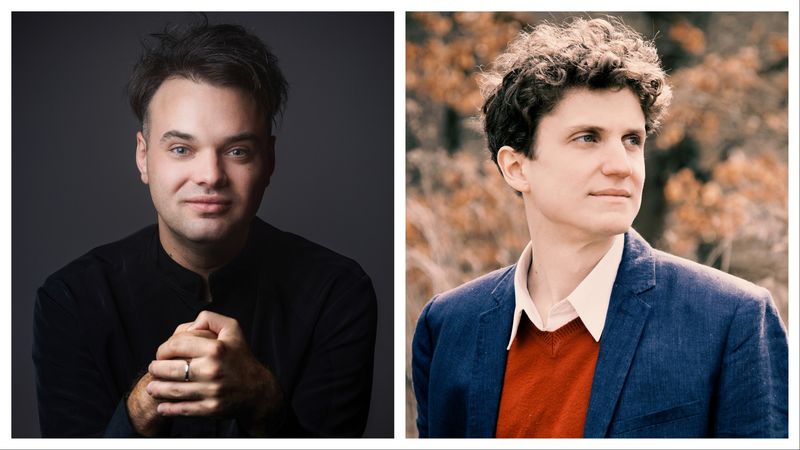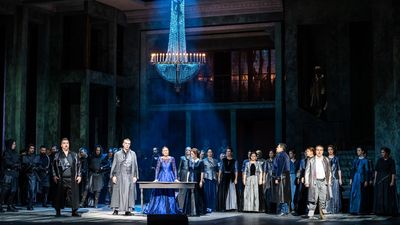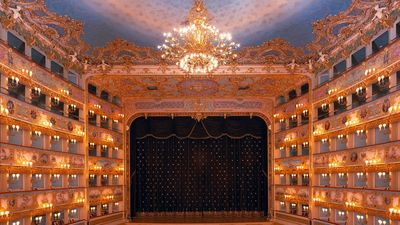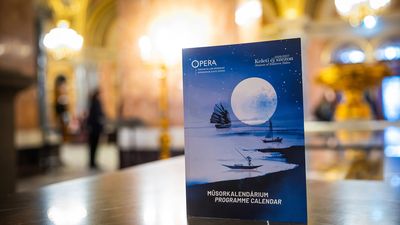
On 27 and 28 September 2025, works by Wagner, Mozart, and Beethoven, the three featured composers of the Hungarian State Opera’s 142nd season, will be performed at the Ybl Palace on Andrássy Avenue. At the OPERA141 concert, held on the anniversary of the inauguration of the Opera House the Overture to Tannhäuser, Mozart’s Piano Concerto No. 24, and Beethoven’s Symphony No. 7 will be presented by the Hungarian State Opera Orchestra under the baton of principal conductor Martin Rajna, with pianist Zoltán Fejérvári as the evening’s soloist.
The highlight of the programme is Beethoven’s Symphony No. 7, which the composer wrote in 1811–12 during the shadow of the Napoleonic Wars and a carefree holiday in Bohemia, a circumstance uncharacteristic of him. The symphony is unique in that each of its four movements follows a distinct rhythmic pattern, something that, according to some interpretations, grew out of Beethoven’s fascination with ancient Greek literature and its metrical verse. This rhythmic drive, combined with the increasingly lively and almost intoxicating momentum of the third and fourth movements, inspired Wagner to hail the work as the “apotheosis of the dance.” Yet the most popular section of the symphony is undoubtedly the second movement, whose slow, funeral-march-like opening has been used as a dramatic underscore in numerous films, including Mr. Holland’s Opus (dir. Stephen Herek, 1995), Irreversible (dir. Gaspar Noé, 2002), and The King’s Speech (dir. Tom Hooper, 2010).
The first half of the concert is opened by the overture to Wagner’s Tannhäuser, his Romantic opera premiered in Dresden in 1845. Its title character is a knight torn between earthly and heavenly love, between sensuality embodied by Venus and redemption represented by Elisabeth. This duality is also reflected in the overture, where the slow chorale of pilgrims departing for Rome, carrying penitence and religious devotion, alternates with, and is eventually overwhelmed by, the impassioned, sensual depiction of the Venusberg.
Mozart first presented his Piano Concerto No. 24 in C minor at the Burgtheater in Vienna in 1786, shortly before the premiere of Le nozze di Figaro. While the opera is characterised by a light, playful tone, the three-movement concerto gives space to the composer’s darker musical ideas. Lasting nearly half an hour, the work is unanimously regarded by critics as Mozart’s most thoroughly developed and orchestrated piano concerto, one in which the Viennese Classical composer already anticipated hallmarks of 19th-century Romanticism and exerted great influence on Beethoven’s own concertos. The soloist is pianist Zoltán Fejérvári, professor of piano and chamber music at the Basel Academy of Music, who, alongside his teaching, enhances the reputation of Hungarian pianists as an instrumental soloist on four continents’ most prestigious stages.
The season-opening concert of the Hungarian State Opera Orchestra is conducted by principal conductor Martin Rajna, one of the outstanding musical personalities of his generation. A Junior Prima Award laureate, he will also become Artistic Director of the Luxembourg Philharmonic Orchestra in September 2026. In the current season at the Hungarian State Opera, he is set to conduct Puccini’s Turandot and La bohème, Verdi’s Aida and Macbeth, as well as the New Year’s Beethoven concert.
Photos by Attila Nagy / Balázs Böröcz


